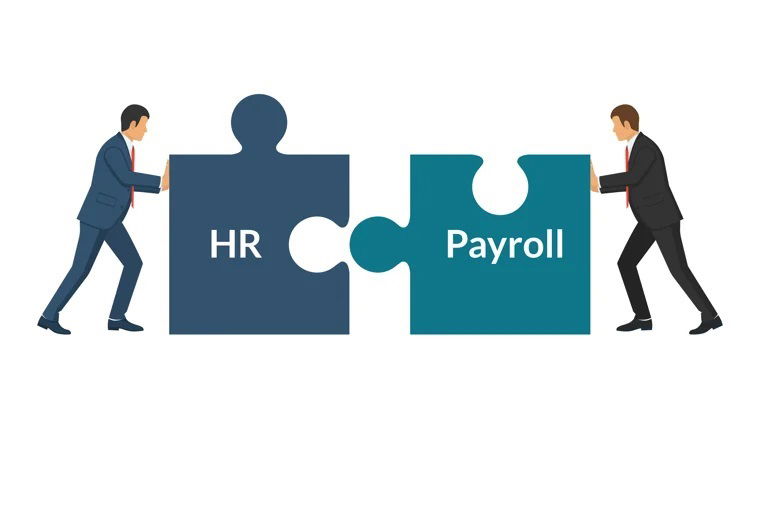What are the Best Practices for HR Payroll?
HR Payroll is a highly important process that involves working with the compensation of employees, benefits, and taxes. It is a detailed procedure, which involves attention to detail, precision and adherence to different laws and regulations. HR Payroll is the essential activity that needs to involve the cooperation of HR, finance, and accounting departments.
The value of HR Payroll:
The HR Payroll management forms the core of any organization, and this implies that all the employees of the organization are paid efficiently and promptly, which also keeps them within the boundaries of laws and regulations. It is extremely important in terms of employee satisfaction, handling money, and risk prevention. Organizations will be able to enjoy a lot of benefits when they priorities HR Payroll. Therefore, the HR Payroll Course is required for several reasons:
- Employee satisfaction: Employee satisfaction is very important to be done in a timely and accurate manner.
- Compliance: HR Payroll departments are obligated to cope with numerous laws and regulations, such as tax laws, labor laws and benefits regulations.
- Risk Management: In case of failure to obey the law and regulations, there may be penalties, fines, and damage to the image.
- Financial Management: The HR Payroll teams should also take care of expenses that are associated with payroll and ensure that such costs are accounted for and managed properly.
Important Parts of HR Payroll:
HR Payroll includes a number of important elements that interact to provide the smooth functioning of the employee compensation, together with compliance. These major parts are salary processing, benefits administration, tax compliance, attendance tracking and reporting and analytics. With proper control of these elements, organizations will be able to streamline their payroll operations. The use of HR Payroll consists of a number of important elements, which are as follows:
- Salary Processing: Calculation of payrolls, payment and deductible management.
- Benefits Administration: Handling of benefits of employees such as health insurance, retirement benefits and other schemes.
- Tax Compliance: Ensuring that taxes and regulations, such as income tax, social security tax and other taxes, are followed.
- Attendance: Attendance management, injury leaves, and any type of time-off policy.
- Reporting and Analytics: Mastery of business payroll information by providing insights and analytics to make business decisions.
Advantages of strong HR Payroll Administration:
The positive outcome of good HR Payroll management has many advantages that affect the personnel and the organization. Optimizing payroll operations enables organizations to enhance job satisfaction, limit compliance risks and gain financial control over workers. This, in its turn, triggers business success and well-informed decision-making. Good HR Payroll management has a number of advantages, such as the following:
- Greater Staff Satisfaction: This results in greater staff satisfaction and confidence in the company due to timely and correct payment of salaries.
- Minimized Compliance Risk: Minimum compliance risk is achieved through ensuring the laws and regulations are followed.
- Improved Efficiency: No more waste or clerical errors in the payroll.
- More Financial Management: Precise accounting and control of payroll costs make financial management better.
- Data-Driven Insights: From providing payroll data insights and analytics, business decisions can be made.
Best HR Payroll Management Practices:
HR Payroll can help organizations solve the challenge by implementing best practices and thus optimizing their payroll processes. There is the possibility of introducing automation, systems of payment of salary, training, and frequent auditing to enhance efficiency, compliance, and accuracy. These are practices that make the HR Payroll teams excel. There is a huge demand for Payroll professionals in cities like Noida and Delhi. Therefore, enrolling in the HR Payroll Course In Noida can help you start a career in this domain. The following constitutes some of the best practices through which organizations can manage the challenge of HR Payroll management:
- Payroll Processes Automation: Payroll processes can be automated, and productivity can be increased with payroll automation, along with reduced mistakes.
- Adopting a Payroll System: Adopting a payroll system is a way to automate the process of payroll management and enhance compliance.
- Training and Development: Opportunities to train and develop the workforce can be provided to the HR Payroll teams to upgrade their expertise and skills.
- Regular Audits and Reviews: By performing periodical audits and reviews, it is possible to establish conformance and accuracy.
Conclusion:
HR Payroll is an important process, where care, accuracy, and rule satisfaction should be taken into consideration. Some of the advantages of efficient HR Payroll management are an enhanced satisfaction rate among employees, a lower compliance risk level, and greater productivity. IT hubs like Delhi and Noida offer many jobs for HR payroll professionals. Therefore, enrolling in the HR Payroll Course In Delhi can help you start a career in this domain. With best practices and the use of technology, organizations are in a position to simplify the process of payroll and enhance the level of compliance. The people now working keep transforming, so the HR Payroll departments have to cope with new rules and technologies and meet the needs of the employees to make the organization remain successful.

